Based on the 2013 Constitution and the United Nations Convention on the Rights of the Child, the 2016 Law on Children stipulates 25 groups of children's rights (from Article 12 to Article 36) with some additional or more specific rights such as: The right to freedom of belief and religion; the right to privacy; the right to alternative care and adoption; the right to protection from sexual abuse, exploitation, violence, buying, selling, kidnapping, swapping, appropriation, etc.
Article 12. Right to life Children have the right to have their lives protected and to be guaranteed the best living and development conditions.
Article 13. Right to birth registration and nationality Children have the right to birth registration, death registration, full name, nationality; to have their father, mother, ethnicity, and gender determined according to the provisions of law. [caption id="attachment_600719" align="alignnone" width="768"]
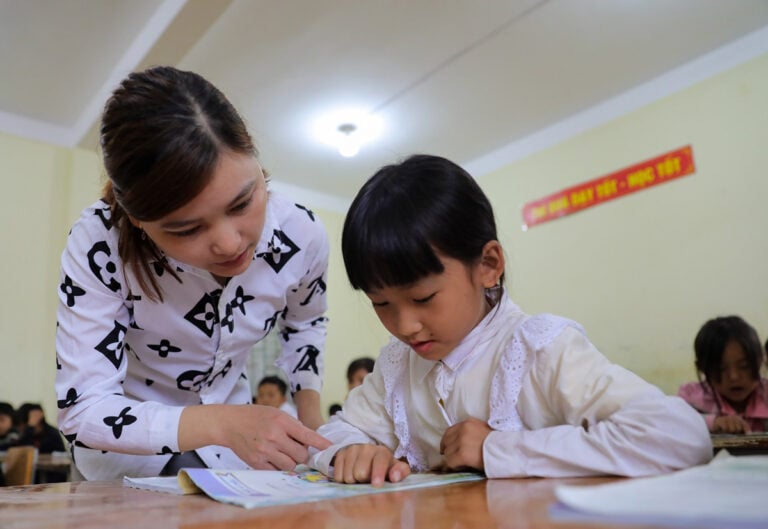
Teachers and students of Can Chu Phin Primary Boarding School for Ethnic Minorities, Meo Vac District,
Ha Giang Province. (Illustration: VNA)[/caption]
Article 14. Right to health care Children have the right to the best health care, priority access to and use of disease prevention, examination and treatment services.
Article 15. Right to care and nurture Children have the right to care and nurture for comprehensive development.
Article 16. Right to education , learning and talent development- Children have the right to education and learning to develop comprehensively and maximize their potential.
- Children have equal opportunities to learn and be educated; to develop their talents, abilities, creativity and inventions.
Article 17. Right to play and recreation Children have the right to play and recreation; have equal opportunities to participate in cultural, artistic, physical education,
sports and tourism activities appropriate to their age.
Article 18. Right to preserve and promote identity- Children have the right to respect their own characteristics and values in accordance with their age and national culture; to have family relationships recognized.
- Children have the right to use their own language and writing, preserve their identity, promote the cultural traditions, customs and good practices of their nation.
Article 19. Right to freedom of belief and religion Children have the right to freedom of belief and religion, to follow or not to follow any religion and must be guaranteed safety, for the best interests of the child.
Article 20. Right to property Children have the right to ownership, inheritance and other rights to property as prescribed by law.
Article 21. Right to privacy- Children have the inviolable right to privacy, personal secrets and family secrets for the best interests of the child.
- Children are protected by law in their honor, dignity, reputation, confidentiality of letters, telephone calls, telegrams and other forms of private information exchange; and are protected against illegal interference with private information.
Article 22. Right to live with parents Children have the right to live with their parents; to be protected, cared for and educated by both parents, except in cases of separation from their parents as prescribed by law or for the best interests of the child. When separated from their parents, children are assisted to maintain contact and contact with their parents and family, except in cases where it is not in the best interests of the child.
Article 23. Right to reunion, contact and contact with their parents Children have the right to know their biological parents, except in cases where it affects the best interests of the child; to maintain contact or contact with both parents when the child, parents reside in different countries or when they are detained or deported; to be facilitated in exiting or entering the country to reunite with their parents; to be protected from being taken abroad in violation of the law; to be provided with information when their parents are missing.
Article 24. Right to alternative care and adoption- Children are provided with alternative care when they no longer have parents; are not or cannot live with their biological parents; are affected by natural disasters, catastrophes, or armed conflicts for the safety and best interests of the children.
- Children are adopted according to the provisions of the law on adoption.
Article 25. Right to be protected from sexual abuse Children have the right to be protected in all forms from sexual abuse.
Article 26. Right to be protected from labor exploitation Children have the right to be protected in all forms from labor exploitation; from working before the age, beyond the time limit or doing heavy, toxic or dangerous work as prescribed by law; from being assigned to work or working in a place that has a negative impact on the personality and comprehensive development of children. [caption id="attachment_625333" align="alignnone" width="768"]
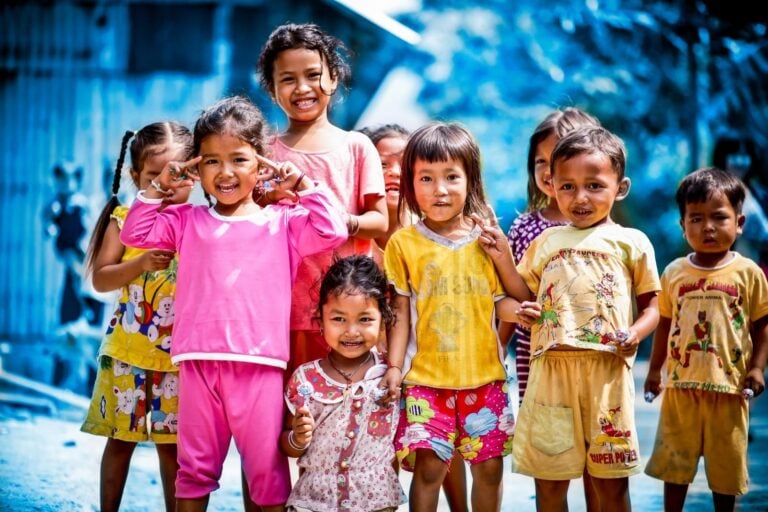
Protecting the rights and interests of children is considered one of the top priorities by many countries. (Photo: UNICEF)[/caption]
Article 27. Right to be protected from violence, abandonment, and neglect Children have the right to be protected in all forms from violence, abandonment, and neglect that harm their comprehensive development.
Article 28. Right to be protected from being bought, sold, kidnapped, exchanged, and appropriated Children have the right to be protected in all forms from being bought, sold, kidnapped, exchanged, and appropriated.
Article 29. Right to be protected from narcotics Children have the right to be protected from all forms of illegal use, production, transportation, purchase, sale, and possession of narcotics.
Article 30. Right to be protected in proceedings and handling of administrative violations Children have the right to be protected in proceedings and handling of administrative violations; ensure the right to defense and self-defense, protection of legitimate rights and interests; to receive legal aid, to express opinions, not to be deprived of liberty illegally; not to be tortured, persecuted, humiliated, insulted to honor, dignity, violated, psychologically pressured and other forms of abuse.
Article 31. Right to protection when facing natural disasters, catastrophes, environmental pollution, armed conflicts Children have the right to priority protection and assistance in all forms to escape the impact of natural disasters, catastrophes, environmental pollution, armed conflicts.
Article 32. Right to social security Children who are Vietnamese citizens are guaranteed social security according to the provisions of law in accordance with the
socio -economic conditions where the children live and the conditions of their parents or caregivers.
Article 33. Right to access information and participate in social activities Children have the right to access information fully, promptly, and appropriately; have the right to seek and receive information in all forms as prescribed by law and to participate in social activities appropriate to their age, maturity, needs and capacity.
Article 34. Right to express opinions and assembly Children have the right to express their opinions and aspirations on issues related to children; to freely assemble in accordance with the provisions of law appropriate to their age, maturity and development; to have their legitimate opinions and aspirations listened to, accepted and responded to by agencies, organizations, educational institutions, families and individuals.
Article 35. Rights of children with disabilities Children with disabilities enjoy all children's rights and the rights of people with disabilities as prescribed by law; to receive support, care and special education to restore functions, develop self-reliance and integrate into society.
Article 36. Rights of stateless children, refugee children and asylum seekers Stateless children residing in Vietnam, refugee children and asylum seekers are protected and provided with humanitarian assistance, and are entitled to search for their fathers, mothers and families in accordance with the provisions of Vietnamese law and international treaties to which the Socialist Republic of Vietnam is a member.
Tra Khanh Teachers and students of Can Chu Phin Primary Boarding School for Ethnic Minorities, Meo Vac District, Ha Giang Province. (Illustration: VNA)[/caption] Article 14. Right to health care Children have the right to the best health care, priority access to and use of disease prevention, examination and treatment services. Article 15. Right to care and nurture Children have the right to care and nurture for comprehensive development. Article 16. Right to education , learning and talent development
Teachers and students of Can Chu Phin Primary Boarding School for Ethnic Minorities, Meo Vac District, Ha Giang Province. (Illustration: VNA)[/caption] Article 14. Right to health care Children have the right to the best health care, priority access to and use of disease prevention, examination and treatment services. Article 15. Right to care and nurture Children have the right to care and nurture for comprehensive development. Article 16. Right to education , learning and talent development Protecting the rights and interests of children is considered one of the top priorities by many countries. (Photo: UNICEF)[/caption] Article 27. Right to be protected from violence, abandonment, and neglect Children have the right to be protected in all forms from violence, abandonment, and neglect that harm their comprehensive development. Article 28. Right to be protected from being bought, sold, kidnapped, exchanged, and appropriated Children have the right to be protected in all forms from being bought, sold, kidnapped, exchanged, and appropriated. Article 29. Right to be protected from narcotics Children have the right to be protected from all forms of illegal use, production, transportation, purchase, sale, and possession of narcotics. Article 30. Right to be protected in proceedings and handling of administrative violations Children have the right to be protected in proceedings and handling of administrative violations; ensure the right to defense and self-defense, protection of legitimate rights and interests; to receive legal aid, to express opinions, not to be deprived of liberty illegally; not to be tortured, persecuted, humiliated, insulted to honor, dignity, violated, psychologically pressured and other forms of abuse. Article 31. Right to protection when facing natural disasters, catastrophes, environmental pollution, armed conflicts Children have the right to priority protection and assistance in all forms to escape the impact of natural disasters, catastrophes, environmental pollution, armed conflicts. Article 32. Right to social security Children who are Vietnamese citizens are guaranteed social security according to the provisions of law in accordance with the socio -economic conditions where the children live and the conditions of their parents or caregivers. Article 33. Right to access information and participate in social activities Children have the right to access information fully, promptly, and appropriately; have the right to seek and receive information in all forms as prescribed by law and to participate in social activities appropriate to their age, maturity, needs and capacity. Article 34. Right to express opinions and assembly Children have the right to express their opinions and aspirations on issues related to children; to freely assemble in accordance with the provisions of law appropriate to their age, maturity and development; to have their legitimate opinions and aspirations listened to, accepted and responded to by agencies, organizations, educational institutions, families and individuals. Article 35. Rights of children with disabilities Children with disabilities enjoy all children's rights and the rights of people with disabilities as prescribed by law; to receive support, care and special education to restore functions, develop self-reliance and integrate into society. Article 36. Rights of stateless children, refugee children and asylum seekers Stateless children residing in Vietnam, refugee children and asylum seekers are protected and provided with humanitarian assistance, and are entitled to search for their fathers, mothers and families in accordance with the provisions of Vietnamese law and international treaties to which the Socialist Republic of Vietnam is a member. Tra Khanh
Protecting the rights and interests of children is considered one of the top priorities by many countries. (Photo: UNICEF)[/caption] Article 27. Right to be protected from violence, abandonment, and neglect Children have the right to be protected in all forms from violence, abandonment, and neglect that harm their comprehensive development. Article 28. Right to be protected from being bought, sold, kidnapped, exchanged, and appropriated Children have the right to be protected in all forms from being bought, sold, kidnapped, exchanged, and appropriated. Article 29. Right to be protected from narcotics Children have the right to be protected from all forms of illegal use, production, transportation, purchase, sale, and possession of narcotics. Article 30. Right to be protected in proceedings and handling of administrative violations Children have the right to be protected in proceedings and handling of administrative violations; ensure the right to defense and self-defense, protection of legitimate rights and interests; to receive legal aid, to express opinions, not to be deprived of liberty illegally; not to be tortured, persecuted, humiliated, insulted to honor, dignity, violated, psychologically pressured and other forms of abuse. Article 31. Right to protection when facing natural disasters, catastrophes, environmental pollution, armed conflicts Children have the right to priority protection and assistance in all forms to escape the impact of natural disasters, catastrophes, environmental pollution, armed conflicts. Article 32. Right to social security Children who are Vietnamese citizens are guaranteed social security according to the provisions of law in accordance with the socio -economic conditions where the children live and the conditions of their parents or caregivers. Article 33. Right to access information and participate in social activities Children have the right to access information fully, promptly, and appropriately; have the right to seek and receive information in all forms as prescribed by law and to participate in social activities appropriate to their age, maturity, needs and capacity. Article 34. Right to express opinions and assembly Children have the right to express their opinions and aspirations on issues related to children; to freely assemble in accordance with the provisions of law appropriate to their age, maturity and development; to have their legitimate opinions and aspirations listened to, accepted and responded to by agencies, organizations, educational institutions, families and individuals. Article 35. Rights of children with disabilities Children with disabilities enjoy all children's rights and the rights of people with disabilities as prescribed by law; to receive support, care and special education to restore functions, develop self-reliance and integrate into society. Article 36. Rights of stateless children, refugee children and asylum seekers Stateless children residing in Vietnam, refugee children and asylum seekers are protected and provided with humanitarian assistance, and are entitled to search for their fathers, mothers and families in accordance with the provisions of Vietnamese law and international treaties to which the Socialist Republic of Vietnam is a member. Tra Khanh




![[Photo] Prime Minister Pham Minh Chinh chairs the 16th meeting of the National Steering Committee on combating illegal fishing.](https://vphoto.vietnam.vn/thumb/1200x675/vietnam/resource/IMAGE/2025/10/07/1759848378556_dsc-9253-jpg.webp)


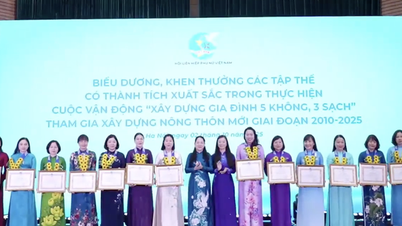

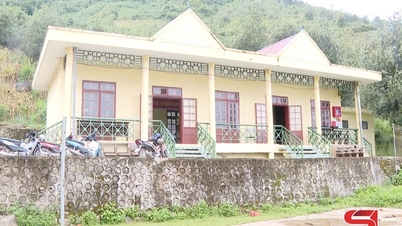

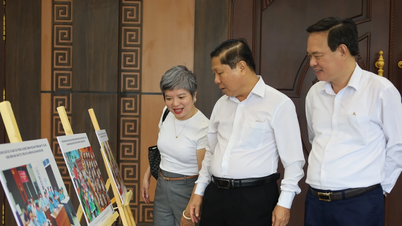

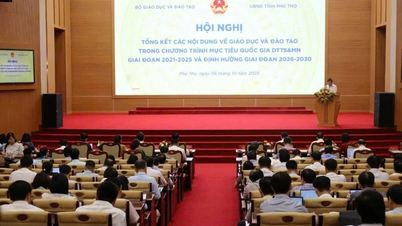

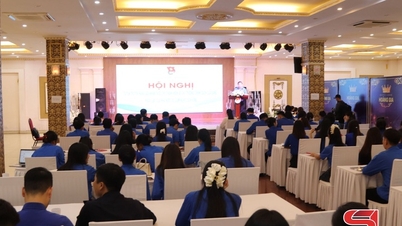
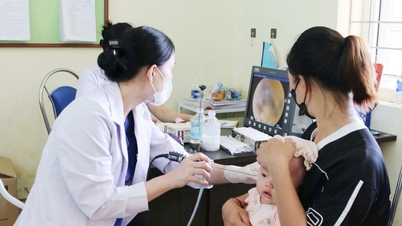





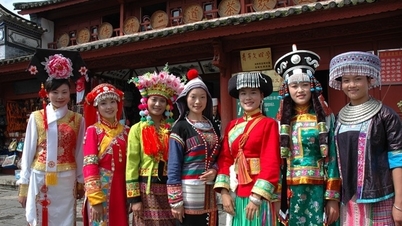

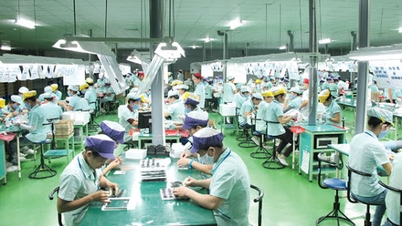
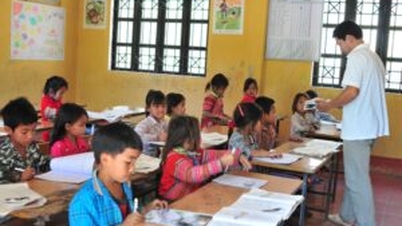

![[Photo] Super harvest moon shines brightly on Mid-Autumn Festival night around the world](https://vphoto.vietnam.vn/thumb/1200x675/vietnam/resource/IMAGE/2025/10/07/1759816565798_1759814567021-jpg.webp)

























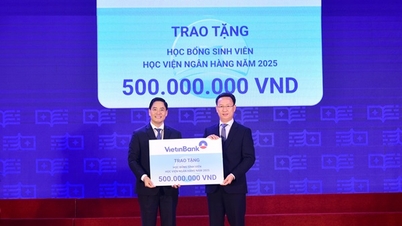









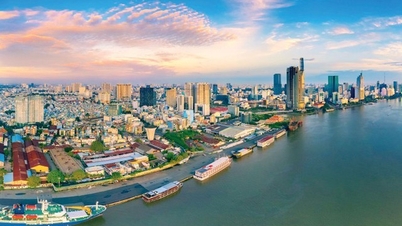



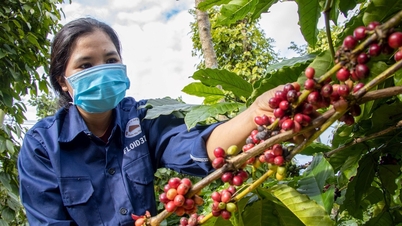






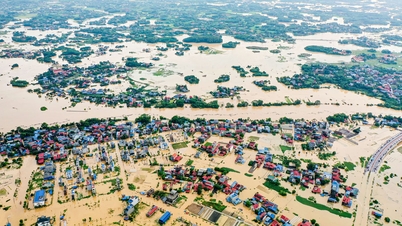





















Comment (0)